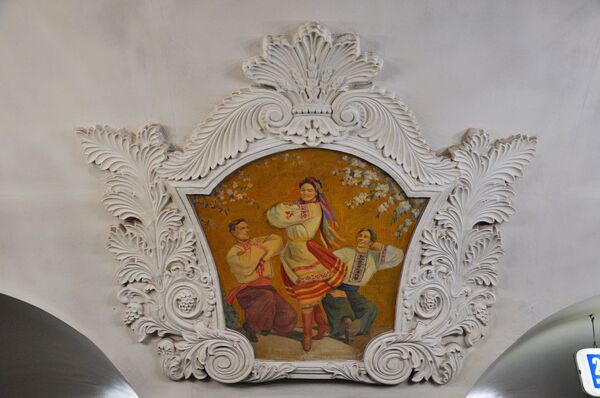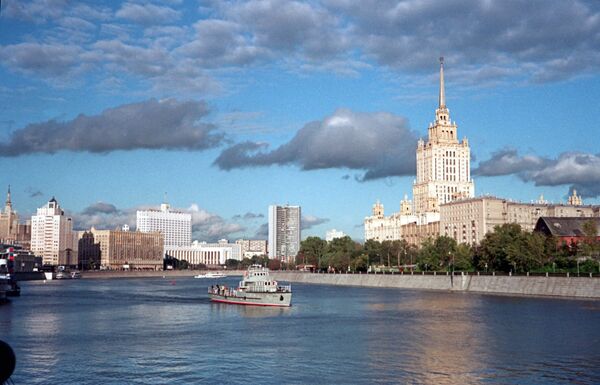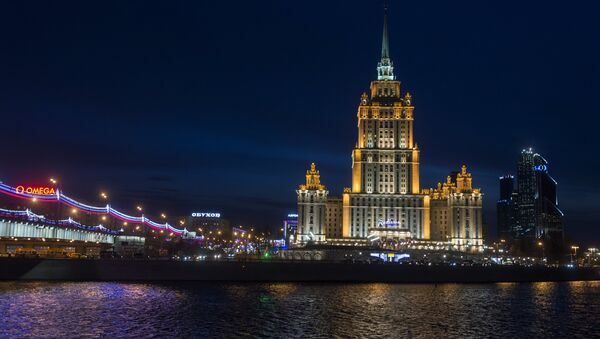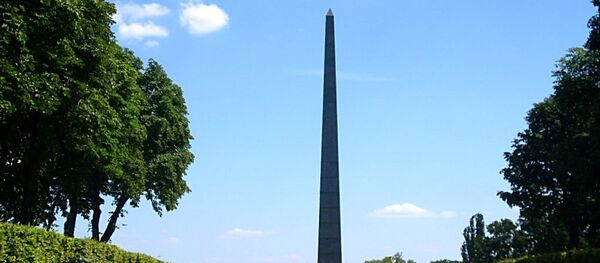On Tuesday the Council's budgetary commission stepped out in support of an initiative to rename several streets and objects of infrastructure associated with Moscow, Ukrainian online newspaper Vesti reports.
The initiative is set to rename Moskovskaya Street, located in central Kiev, the Moskovskiy Bridge, Moskovskiy Prospekt, and Moskovskaya Square.
The plans will be formally presented at one of the Council's upcoming sessions, and the budgetary commission has yet to calculate exactly how much the replacement of street signs and name plates will cost. Officials have provided an "approximate estimate" of over 9 million hryvnia, equivalent to about $425,000 USD, adding that the estimate is continually expanding.
Mikhail Kalnitsky, a city resident who works as a tour guide, told the newspaper that Moskovskaya Street is already carrying its historical name, and therefore renaming it makes absolutely no sense.
Sergei, a resident of the street, offered a sharper criticism, saying that the initiative is simply "a game of populism. Ok, rename the Moskovskiy Bridge or the Square. It would be better to clean up the yards there, instead of spending time and money on name plates and bureaucracy. Especially since from the beginning, this street was linked to its geographical direction, not to politics."
For their part, Moscow authorities and city residents are proud of their Kiev and Ukraine-associated street names and architectural objects, and the city has made clear that they have no plans to change that.
From the Kievsky Vokzal Rail Terminal, one of the city's grandest and most beautiful, to the city's three 'Kievskaya' metro stations, two of them running on two key metro lines, to Kievskaya Square, and Kievskoe Shosse, a central southwestern highway leading straight into the city, Moscow has at least a dozen streets, place names and architectural objects associated with the Ukrainian capital.

Moreover, the Russian capital has literally dozens of place names associated with Ukraine, its history, its cities, its poets, writers and social figures. The most impressive of these is of course the grand Hotel Ukraina and the nearby Ukrainsky Boulevard, located in the west of the city center near the rail terminal and metro stations.

The city's west is overflowing with the names of Ukrainian poets, artists, and public figures, from Lesya Ukrainka to Ivan Franko and Taras Shevchenko, the latter honored with a riverside walkway in the city center featuring views of the Russian House of Government and the Moscow City business center.
Moscow is filled with the street names of almost every major Ukrainian city, from Dnepropetrovskaya to Donetskaya, Kharkovskaya, Khersonskaya, Odesskaya, and Zaparozhskaya. Moreover, as might be expected, the city also commemorates the Ukrainian-born heroes of the Great Patriotic War, including Marshals Kliment Voroshilov, Rodion Malinovskiy, Sergei Sokolov and of course, Semyon Timoshenko.

Nikolai Gogol, the famous Ukrainian-Russian poet, has a prominent street named after him in the center of the city intersecting the famous Arbat and New Arbat streets, and located just a stone's throw from the Kremlin. Northeast of the heart of the city is the Maroseyka, formerly the Maloroseyka, named after the Ukrainian-noble area of the city settled hundreds of years ago.
Moscow has more Ukraine-associated place names than one can count, many of them associated with some of the city's most famous streets and architectural objects. This can be expected, given the common history of the Russian and Ukrainian people over the course of many centuries. Nothing will be able to erase Russians' respect for that mutual history, especially not the projects of a hostile Ukrainian political elite. While politicians come and go, close ties created over centuries will always remain.



